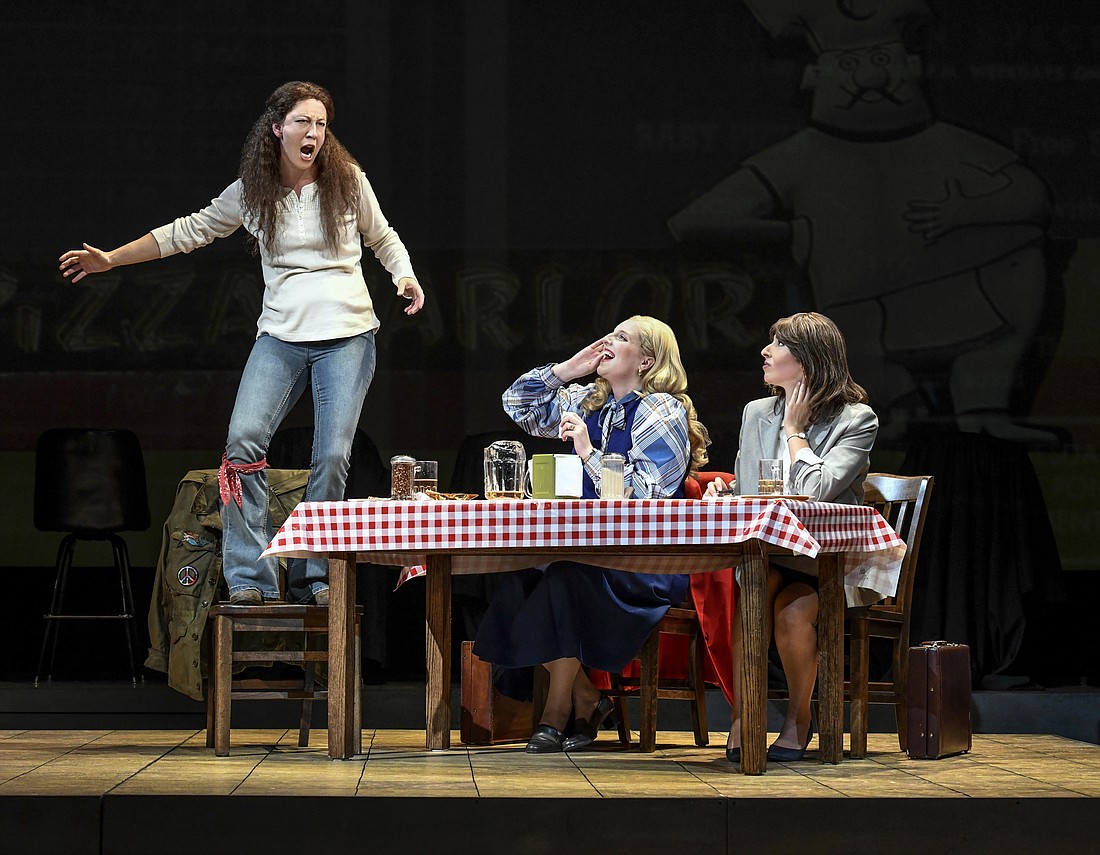- November 23, 2024
-
-
Loading

Loading

Sarasota audiences have raucously embraced Asolo Repertory Theatre’s production of “Roe,” which details the famous abortion case of the 1970s.
Terri Weagant, who plays Norma McCorvey (known better as the legal pseudonym Jane Roe), calls the performance a “crazy fun ride” as audience members from both sides of the aisle hiss and cheer throughout the play. We caught up with her to learn more about the production and why it’s setting audiences off.
All I really knew was that Roe v. Wade was the case that made abortion legal for the entire country. I didn’t know about Norma McCorvey and [her attorney] Sarah Weddington. It’s such an incredible story. These women changed the course of American history without knowing that they were doing so.
She led such a crazy life. Her [pro-life] conversion was the most surprising thing to me. I was also surprised to learn that she never actually had an abortion. This was her third child, and she gave them all up for adoption. She really couldn’t have taken care of them. She was a hard-living, drug-dealing lesbian in the late ’60s, early ’70s. The heartbreaking thing was that she was never really given a chance to succeed from birth. That’s what kept her going — just trying to get by with the circumstances she had. She was able to figure it out, which I feel like all of us are trying to do, really.
It’s one of the most divisive issues in American politics, and it’s not a black and white issue. It’s a human issue. It’s important to understand where people are coming from on the other side. You don’t have to agree with them, but empathizing with them and their struggles surrounding this topic would foster a greater conversation. So often people are so stuck on the issue, as opposed to making it about the people that it affects.
It’s actually really kind of fun. I didn’t realize how vocal the audience would be during the performance. People on both sides will cheer or even hiss when specific politicians’ names are brought up during the show. As actors we’re there, we’re hearing you, but we can’t react to it. I’ve never experienced an audience reaction like that. People are really being transported into the discussion.
In “Bo-Nita” I portrayed seven characters, jumping back and forth. With Roe, I love following one character’s journey, and I also love looking other actors in the face and being able to see them. I’ve recently realized that I’ve been making my acting living playing working-class characters who are trying to just get by. A lot of them have challenging childhoods. I’ve played a lot of characters who don’t have a lot of support and have to navigate through the world on their own.
No, they couldn’t be further from my childhood. But I was raised in a rural community. I know these girls. I grew up with these girls. That character is not me, but they’re not far from my past.
I’m excited that they’ll know more about these women who had such an impact on the course of American history. One thing that playwright Lisa Loomer kept saying was that she hopes you’ll see your point of view reflected honestly throughout the course of the play, no matter what your point of view is. I really hope that people walk away empathizing with a person or an experience that might be different from theirs. Not necessarily agreeing with it, but understanding why people do the things they need to do.